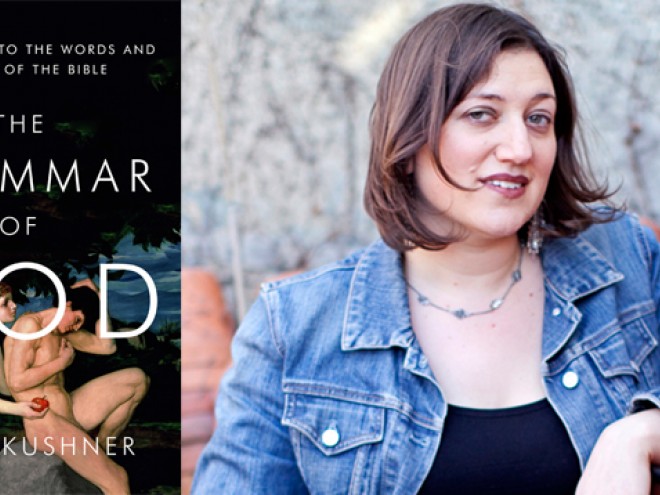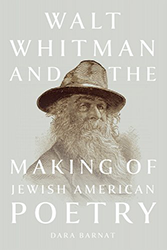Aviya Kushner’s Wolf Lamb Bomb is a contemporary, poetic exploration of the Book of Isaiah. Spanning from Jerusalem to Iowa, and from Biblical times to 9/11, these stirring poems challenge any complacent reading of the prophet. As bombs detonate in Jerusalem and planes are weaponized in New York, Kushner imbues Isaiah’s iconic verses “nation shall not lift the sword against nation, neither shall they learn war anymore” and “a wolf shall live with a lamb” with new urgency.
Kushner is the author of The Grammar of God: A Journey into the Words and Worlds of the Bible (Spiegel & Grau / Penguin Random House, 2015), and her engagement with Isaiah’s Hebrew is one of the highlights of her English poetry. For example, in “Ancient Hebrew,” Kushner explains that in Isaiah 32:5 “when the vowels beneath the letters of the word for ‘villain’ in that verse are covered, the word becomes ‘harp’”: “How close the villain is to the harp!/Two vowels separate them, just as two small/letters separate the harp from the generous..” She then asks why “no one learns languages like this” — why her way of approaching the Hebrew is “considered wrong, ridiculous.” The poem ends with a Whitmanesque expansiveness — an argument that Kusher’s reading of Isaiah is vital because it allows for the multiplicity and contradictions of our condition: “I am giving and villainous and musical./In my body I carry clarity and crime and the harp..” In her poem, the visual and sonic closeness of the two Hebrew words (נָָָָבָל/נֶבֶל—naval, nevel)becomes a meditation on the speaker’s own proximity to the danger the poems so often confront.
In “Shards,” the speaker again examines the language of the Book of Isaiah, this time contrasting her reading with the biblical commentary:
Babylon has fallen, fallen—
and all her idols have collapsed, in delicate detail,
in precise shards. So says the messenger,
so he reports, but I want to know about those shards,[…]
Tell me, once split, once shamed,
what did they do next?
Her question about the shards is not answered in the text or commentary — “Isaiah, you don’t say, and the commentators,[…]/you don’t care either” — yet the speaker is insistent in wanting “the details, I want the identities/of the little shards,/their exact addresses and conditions.” As in “Ancient Hebrew,” “Shards” features a speaker asking why her question about the text is “wrong” despite the richness of its investigation. The speaker’s question is gendered — it is of no interest to the male commentators — and shifts our attention to details overlooked in canonical narratives. As “Ancient Hebrew” examines the slightest shift of vowels, “Shards” calls on us to investigate the smallest splinters of shame. Both poems capture the vitality of the collection: they insist that asking the Book of Isaiah new questions will result in new answers, mysteries, and the divisions between them as subtle yet significant as vowels. Wolf Lamb Bomb turns and turns Isaiah’s verse, and discovers the ways in which it speaks to our contemporary struggles, but perhaps the most striking poetry comes when Kushner faces the biblical and speaks back.
Allison Pitinii Davis is the author of Line Study of a Motel Clerk (Baobab Press, 2017), a finalist for the Berru Poetry Award and the Ohioana Book Award.




